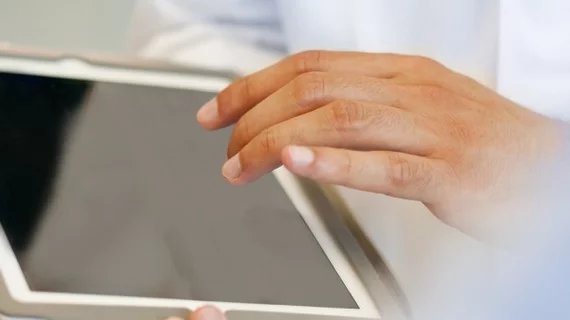Tablet use before bed could spell trouble for sleep patterns
The use of light-emitting tablets near bedtime could delay sleep, suppress melatonin production and hinder next-morning alertness, according to a study published May 22 in Physiological Reports.
Getting a full night’s sleep is important for health, but the devices could be disrupting rest cycles. In this study, researchers examined the effects of using a light-emitting tablet close to bedtime to gain insight into how it could be affecting rest.
“Rapid technological advances and market pressures have led to near ubiquitous use of LE‐devices (e.g., desktop, laptop, and tablet computers, cell/smart phones, televisions, and video games) in the modern home and workplace; and such devices are now integral to many daily functions including communication, commerce, recreation and access to news and information,” wrote co-author Jeanne Duffy, of Brigham and Women's Hospital and Harvard Medical School, and colleagues. “Greater utility, availability, and portability of LE‐devices have additionally led to widespread LE‐device use in the evening and incorporation into the bedtime routine.”
The study included nine healthy adults who were tested for five consecutive evenings. Each night, participants either used a tablet to do whatever they wanted or read printed materials. Researchers noted that, on tablet use nights, participants went to sleep a half hour later. Additionally, participants had reduced melatonin levels and a delay of melatonin secretion. Tablet users rated their next-morning alertness as lower.
"These findings provide more evidence that light-emitting electronic devices have biological effects," said Duffy. "Using light-emitting electronic devices in the late evening can postpone our decision to go to sleep and make us sleepier the next morning."

